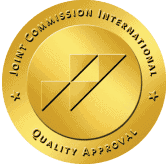You deserve compassionate, evidence-based treatment that addresses the complex challenges of cocaine, methamphetamine, and other stimulant dependencies. Professional treatment centers understand that stimulant addiction affects every aspect of your life, and you need specialized care designed specifically for these powerful substances.
Take the first step toward recovery today – help is available now.
What are the warning signs of stimulant addiction?
Recognizing stimulant addiction early can be life-saving. You may be experiencing addiction if you notice these critical warning signs in yourself or a loved one:
Physical and behavioral indicators:
- Compulsive daily or multiple daily use of cocaine, methamphetamine, or prescription stimulants
- Needing increasingly larger amounts to achieve the same effects
- Experiencing intense cravings that dominate your thoughts
- Continuing use even when facing serious consequences
- Neglecting work, school, or family responsibilities
- Spending money you can’t afford on stimulants
- Engaging in risky behaviors while under the influence
- Isolating from friends and family members
- Lying about drug use or hiding consumption
- Failed attempts to quit or reduce use on your own
Physical health symptoms you might notice:
- Rapid weight loss and decreased appetite
- Chronic insomnia or disrupted sleep patterns
- Elevated heart rate and blood pressure
- Excessive sweating and hyperthermia
- Dental problems (“meth mouth” from methamphetamine)
- Skin picking, sores, or premature aging
- Tremors or involuntary muscle movements
- Frequent nosebleeds (from cocaine use)
- Respiratory problems or chronic cough
- Cardiovascular complications
Psychological and emotional changes:
- Severe mood swings and irritability
- Paranoia and suspicious thoughts
- Anxiety and panic attacks
- Depression during periods without the drug
- Hallucinations or delusions
- Aggressive or violent behavior
- Confusion and disorientation
- Memory problems and cognitive decline
- Loss of interest in previously enjoyed activities
- Suicidal thoughts or behaviors
If you recognize multiple signs from these lists, professional treatment can help you regain control of your life.
Why is stimulant addiction so dangerous?
Stimulant addiction poses immediate and long-term health risks that require urgent medical attention. You face serious consequences when addiction goes untreated:
Immediate health emergencies:
- Heart attack and stroke risk, even in young users
- Seizures and convulsions
- Hyperthermia (dangerous overheating)
- Respiratory failure
- Psychotic episodes with potential for violence
- Overdose leading to coma or death
Long-term health complications:
- Permanent cardiovascular damage
- Irreversible brain changes affecting memory and decision-making
- Severe dental and oral health problems
- Liver and kidney damage
- Increased risk of infectious diseases
- Premature aging and physical deterioration
Recent statistics show that approximately 5 million Americans used cocaine in 2023, while 2.6 million misused methamphetamine. Treatment centers report that early intervention significantly improves recovery outcomes and reduces the risk of permanent health damage.
How does professional stimulant addiction treatment work?
Professional treatment centers use evidence-based approaches specifically designed for stimulant addiction recovery. You’ll receive comprehensive care that addresses both the physical and psychological aspects of addiction:
Medical stabilization and assessment: Treatment begins with thorough medical evaluation and supervised withdrawal management. You’ll receive 24/7 medical monitoring during the initial phase, as stimulant withdrawal can cause severe depression, intense cravings, and suicidal thoughts.
Behavioral therapy interventions :Professional treatment centers employ proven therapeutic approaches:
- Cognitive Behavioral Therapy (CBT) to identify and change addiction-related thought patterns
- Contingency Management providing rewards for maintaining sobriety
- Matrix Model combining individual therapy, family education, and peer support
- Motivational interviewing to strengthen your commitment to recovery
- Relapse prevention training with practical coping strategies
Comprehensive treatment programs: You’ll have access to multiple levels of care designed to meet your specific needs:
- Drug rehab providing intensive residential treatment with 24/7 medical support
- Partial hospitalization program (PHP) offering daily treatment while you return home evenings
- Intensive outpatient program (IOP) with structured therapy sessions multiple times weekly
- Outpatient program (OP) providing flexible scheduling for ongoing support
The most effective stimulant addiction treatment approaches
Treatment centers specializing in stimulant addiction use evidence-based methods proven to achieve lasting recovery:
Contingency Management (CM): This highly effective approach provides tangible rewards for positive behaviors like negative drug tests and treatment attendance. Recent research shows CM significantly increases treatment retention and extends periods of abstinence compared to other behavioral therapies.
Combination therapy protocols: Professional treatment centers combine multiple therapeutic approaches for maximum effectiveness:
- Individual counseling addressing personal triggers and trauma
- Group therapy providing peer support and accountability
- Family therapy healing relationships damaged by addiction
- Medication management for co-occurring mental health conditions
- Holistic therapies supporting overall wellness and stress management
Specialized stimulant protocols: Treatment centers understand that stimulant addiction requires different approaches than other substance dependencies:
- Extended treatment duration to address persistent cravings
- Intensive relapse prevention due to high relapse rates
- Cardiovascular monitoring and medical support
- Nutritional rehabilitation and weight restoration
- Sleep disorder treatment and circadian rhythm restoration
What happens during stimulant withdrawal?
You’ll experience withdrawal symptoms when stopping stimulant use, but professional medical support makes this process safer and more comfortable:
Acute withdrawal phase (first 3-7 days):
- Severe fatigue and excessive sleeping
- Intense drug cravings
- Deep depression and hopelessness
- Increased appetite and weight gain
- Anxiety and agitation
- Inability to experience pleasure (anhedonia)
Subacute withdrawal phase (weeks to months):
- Mood swings and emotional instability
- Sleep disturbances and vivid dreams
- Difficulty concentrating and memory problems
- Continued cravings, especially during stress
- Low energy and motivation
- Social anxiety and isolation
Professional treatment centers provide medical supervision, medication management, and therapeutic support throughout withdrawal. You don’t have to face these challenging symptoms alone.
What makes stimulant addiction treatment successful?
Professional treatment centers achieve the best outcomes by addressing all aspects of addiction:
Evidence-based treatment components:
- Medical detoxification with 24/7 monitoring
- Individual therapy addressing underlying trauma and triggers
- Group counseling providing peer support and accountability
- Family therapy repairing relationships and building support
- Medication management for co-occurring disorders
- Life skills training for practical recovery tools
- Relapse prevention planning with specific strategies
- Aftercare planning ensuring long-term support
Specialized stimulant treatment features:
- Extended treatment duration addressing persistent cravings
- Cardiovascular health monitoring and support
- Nutritional rehabilitation and medical care
- Sleep disorder treatment and restoration
- Cognitive rehabilitation for drug-related brain changes
- Vocational counseling and educational support
Treatment centers report significantly higher success rates when clients complete the recommended treatment duration and engage actively in all program components.
Contact Assure Recovery
Don’t wait another day to begin your recovery from stimulant addiction. You deserve professional treatment that addresses your unique needs with compassion and expertise.
Call Assure Recovery today at (833) 530-0291 to speak with addiction specialists who understand stimulant addiction recovery. You can also visit https://assurerecovery.com/ to learn more about comprehensive treatment programs.
Your recovery begins with a single phone call. Contact Assure Recovery now.



